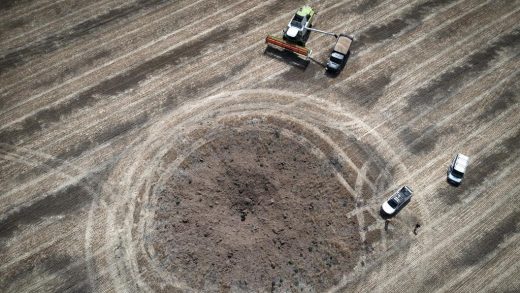
Olivia McAfee took over caring for her father’s hobby bees after he died suddenly, and “…became, almost by accident, the first commercially successful beekeeper in the history of apiarist McAfees.” Her son Asher is a senior in high school.
Lily Campanello, the new girl in town, is Asher’s girlfriend, “a sprite who keeps him from taking himself too seriously; a question mark at the end of his predictable, popular life.”
These two take turns narrating the gripping and moving new novel Mad Honey from best-selling authors Jodi Picoult and Jennifer Finney Boylan. The narration circles around, before and after a pivotal event in their lives, with excruciatingly realistic beauty and pain.
Mad Honey
Picoult’s 28 novels, including Wish You Were Here (2021) and Small Great Things (2016), consistently chronicle and lay bare the depths of human emotion, often in achingly personal detail and frank acknowledgment of the heights and depths of human experience.
Her 2004 novel My Sister’s Keeper, which was made into a film in 2009, tells the story of a girl who was deliberately conceived to provide life-saving blood, and more, for her desperately ill sibling. Picoult has also collaborated with her daughter on two young adult novels.
Jennifer Finney Boylan is an author and professor at Barnard College. She published under the name James Boylan until 2001. Her most recent book, Good Boy: My Life in Seven Dogs, was published in 2020.
Mad Honey will not disappoint any fans of these brilliant authors.
The non-linear chronology in chapters like “January to April 2019: A few months after,” “December 7, 2018: Three hours after,” and “September 22 -October 13, 2018: Two months before” never seems disjointed. Within the chapters, the narrators range through their whole lives, and startling revelations suddenly seem obvious as the main characters become more and more familiar.
Lily’s mother, Asher’s friends, Olivia’s brother and her ex-husband, and countless relatively minor characters come vividly to life, becoming important to Olivia, Lily and Asher. An old boyfriend of Olivia’s is now Adams’ only police. Although she has seen him, for instance, “at town Christmas tree lightings,” there is nothing Hallmarkish about their relationship, or any other aspect of Mad Honey.
Olivia and Lily gradually let readers see deeper into their intertwined lives. Having both intimate perspectives adds richness to the novel’s humanity.
The bees that Olivia continues to tend, and discuss, during all the trauma of events and a resulting trial, provide counterpoint to the humans.
“My father taught me that beekeeping is both a burden and a privilege. You don’t bother the bees unless they need your help, and you help them when they need it. It’s a feudal relationship: protection in return for a percentage of the fruits of their labours.”
An appendix includes a dozen recipes using honey “From Olivia’s Moleskin Notebook,” which her brother Jordan gave her to help her survive the novel’s central trial, that will determine whether devastating events have some meaning, or turn out senselessly tragic.
Mad honey, “from bees that forage on rhododendrons and mountain laurel… causes dizziness, nausea and vomiting, convulsions, cardiac disorders, and more.” Used as a biological weapon as far back as the Persians against the Greeks, it can also cause hallucinations, for which some people may risk the physical symptoms.
Picoult and Boylan have provided ample evidence of the balances of risk and reward in human relationships.
Bill Rambo teaches at the Laureate Academy in St. Norbert.
If you value coverage of Manitoba’s arts scene, help us do more.
Your contribution of $10, $25 or more will allow the Free Press to deepen our reporting on theatre, dance, music and galleries while also ensuring the broadest possible audience can access our arts journalism.
BECOME AN ARTS JOURNALISM SUPPORTER
Click here to learn more about the project.


